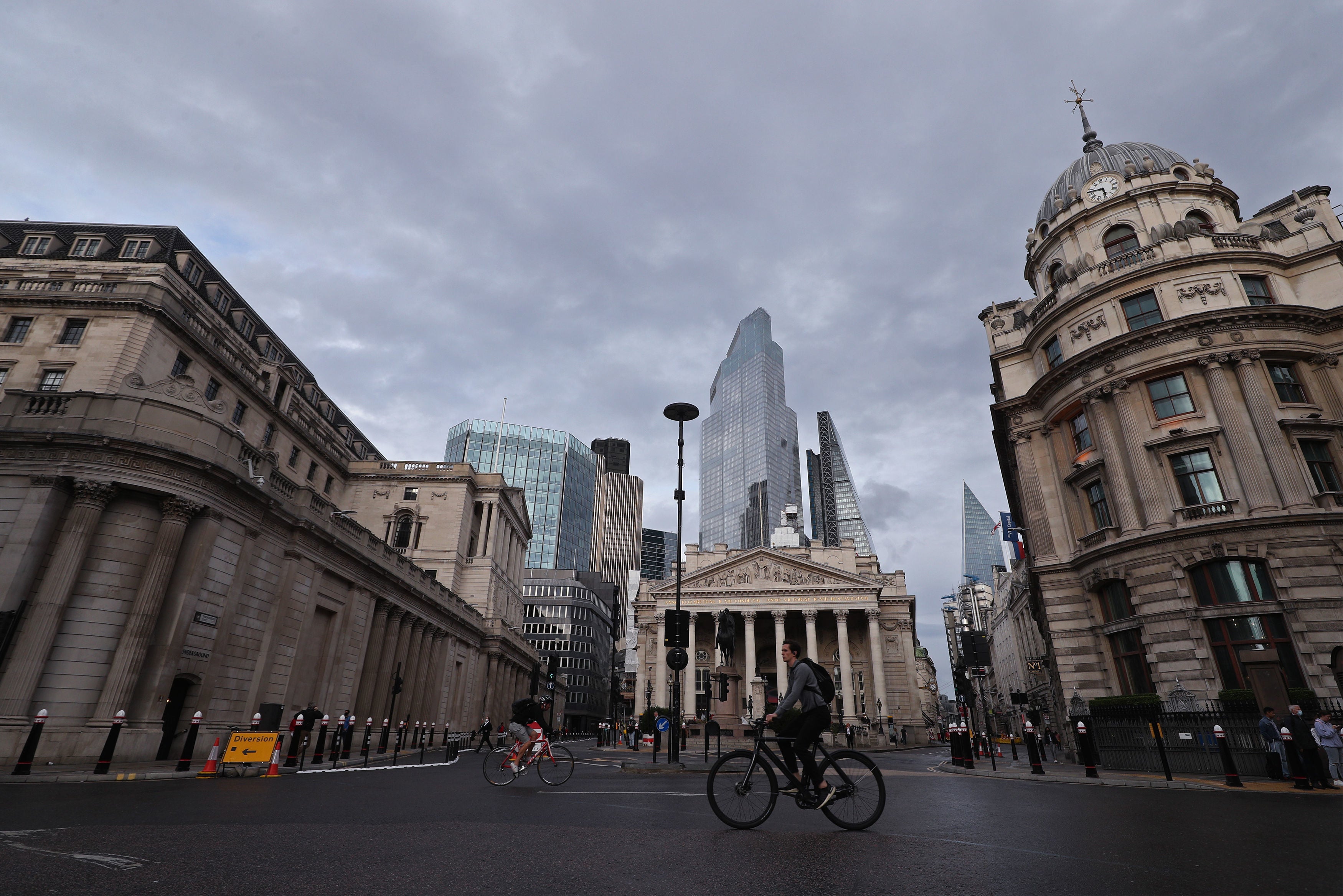UK national debt soars £36bn in August as cost of coronavirus support mounts
Government borrowed more than in any previous August since the Office for National Statistics began publishing monthly figures in 1993

Your support helps us to tell the story
From reproductive rights to climate change to Big Tech, The Independent is on the ground when the story is developing. Whether it's investigating the financials of Elon Musk's pro-Trump PAC or producing our latest documentary, 'The A Word', which shines a light on the American women fighting for reproductive rights, we know how important it is to parse out the facts from the messaging.
At such a critical moment in US history, we need reporters on the ground. Your donation allows us to keep sending journalists to speak to both sides of the story.
The Independent is trusted by Americans across the entire political spectrum. And unlike many other quality news outlets, we choose not to lock Americans out of our reporting and analysis with paywalls. We believe quality journalism should be available to everyone, paid for by those who can afford it.
Your support makes all the difference.The UK's national debt surged £35.9bn in August as the price tag for support measures to help the economy through the coronavirus pandemic rose, official figures show.
Borrowing in August was £30bn more than in the same month last year, taking total public sector debt to £2,024bn.
The government borrowed more than in any previous August since the Office for National Statistics began publishing monthly figures in 1993, but came in lower than anlysts had forecast.
On Thursday Rishi Sunak announced a range of new measures including wage subsidies to replace the furlough scheme which ends on 31 October. The central pillar was the Job Support Scheme which will see th government fund up to 22 per cent of an employee's wages, down from 60 to 80 per cent under the furlough scheme.
The chancellor also extended a VAT cut for the hospitality sector until 31 March and allowed firms to spread deferred payments over 11 months.
As tax revenues have fallen during the pandemic the Treasury has turned to the bond markets to fund spending.
Receipts from VAT, corporation tax and income tax all dropped substantially, the ONS said. The total tax take was £37.3bn in August, £7.5bn less than a year before. Day-to-day expenditure came in £19.5bn higher than in the same month last year at £78.5bn.
While debt is now more than 100 per cent of gross domestic product, the government shoule remain "confortable" because interest rates remain low and may even turn negative, said Paul Craig, portfolio manager at Quilter Investors.
“The government has stuck to its guns and said it will provide whatever support is necessary to support viable jobs," Mr Craig said.
"It was clear the furlough scheme could not go on for ever, and by supporting only jobs that will be likely to exist in the new economy the government will be hoping to stem the bleeding when it comes to the amount borrowed.
“Obviously there is a long way to go in this crisis and much more still to be accounted and borrowed for, but with negative rates remaining an option on the table for the Bank of England the government should remain comfortable about where the level of debt is at.
Nevertheless, the borrowing figures remain a stark reminder of exactly what we face when it comes to recovering from this pandemic."

Join our commenting forum
Join thought-provoking conversations, follow other Independent readers and see their replies
Comments